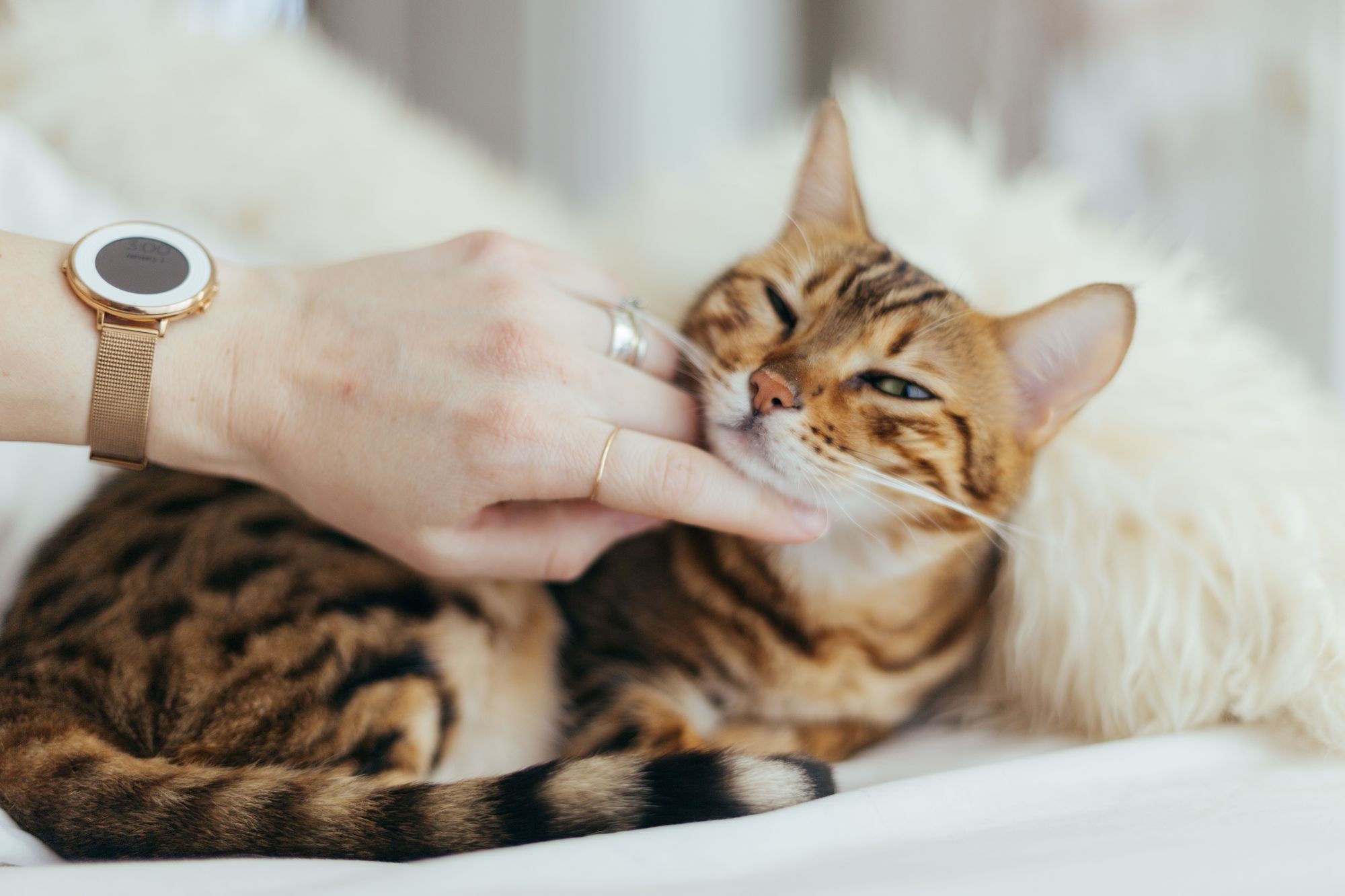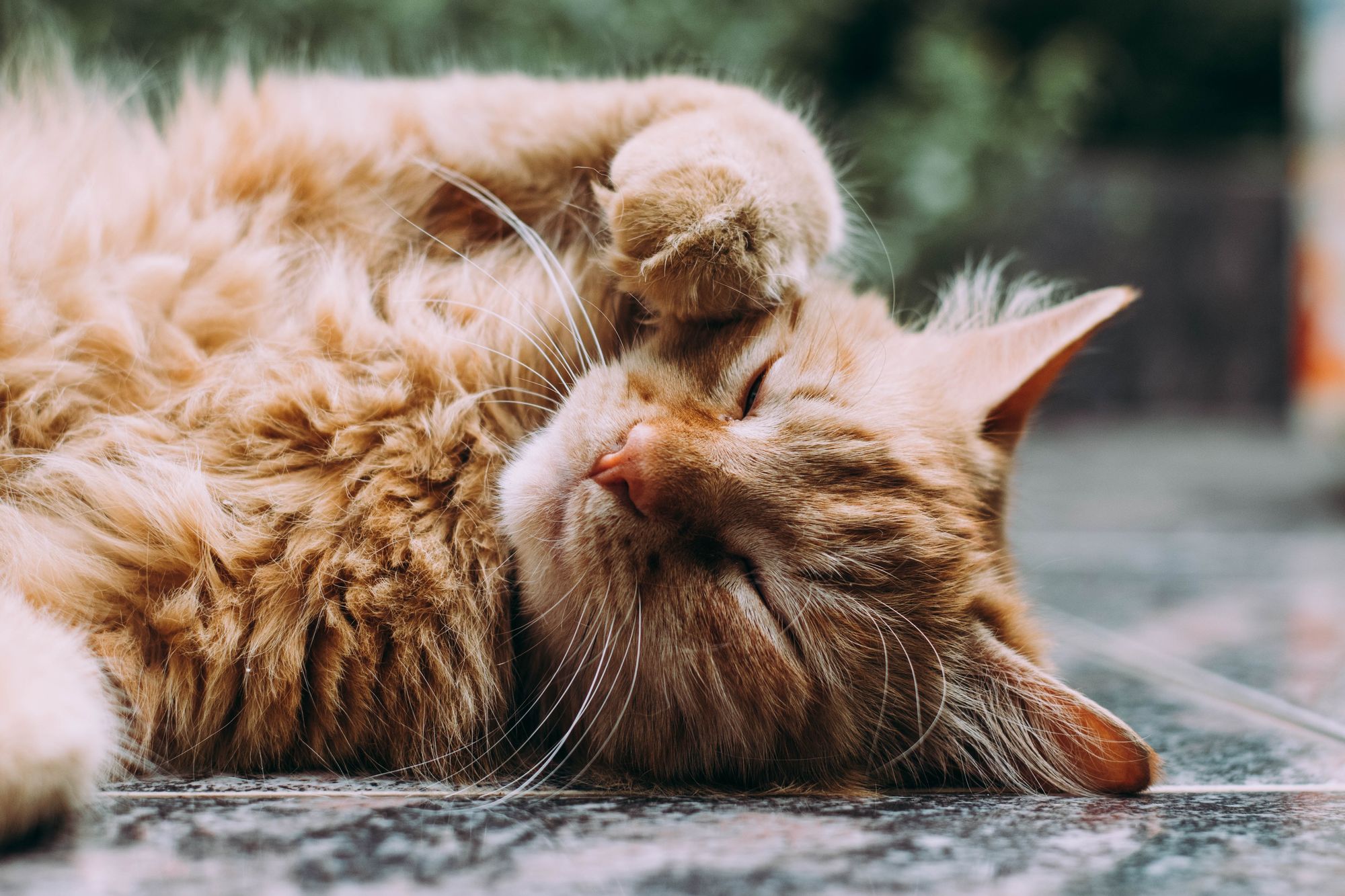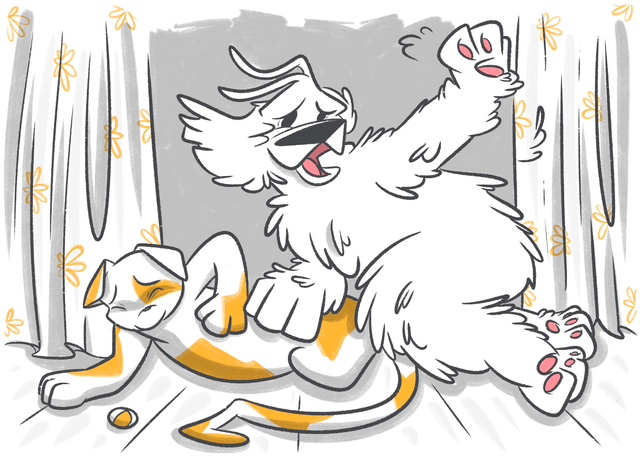Cat heart disease is quite common and can often go undiagnosed for too long, so understanding and recognizing the symptoms is crucial. Although we usually consider it a problem in older cats, even kittens can be born with congenital heart problems like patent ductus arteriosus or aortic stenosis.
If the early symptoms of feline heart disease go unnoticed, the problem can develop into deadly heart failure. This is why we call heart problems the silent killer, and sadly, MSD Manual research shows about 10% of pets have heart problems. So let's delve into everything you need to know.
Stop Googling - Ask a Real Vet
Content:
- Heart Disease In Cats
- Heart Failure In Cats
- Heart Attack In Cats
- Galloping Heart In Cats
- How Can The Emergency Fund Help With Treatment
- FAQ
- Final Thought
Heart Disease In Cats
The cardiovascular system, responsible for pumping blood around our body, can have various issues leading to heart disease. These issues include:
- Valve disease: When the valves in the heart don't close or open properly, causing problems with blood flow.
- Myocardial disease: This happens when the heart muscle becomes weak and can't pump blood effectively or doesn't relax properly, affecting its ability to fill with blood.
- Arrhythmia: It's a condition where the heart beats too slowly, too quickly, or irregularly, disrupting the normal heartbeat rhythm.
- Vascular disease: This occurs when blood vessels create too much resistance, making it difficult for blood to flow smoothly.
- Cardiac shunts and extracardiac shunts: These are abnormal openings between different chambers of the heart or between the heart and lungs, causing irregular blood flow.
- Blood volume issues: When there's either too little or too much blood compared to the capacity of the blood vessels to hold it.
- Parasitism of the cardiovascular system: This includes diseases like heartworm disease, where parasites affect the heart and blood vessels.
Science Direct studies show that about 85% of cats' heart disease comes down to Hypertrophic Cardiomyopathy (HCM), where the wall in the left ventricle of the heart stiffens and thickens. But thickening in the heart muscle can also happen because of thyroid disease (hyperthyroidism, high blood pressure, and aortic stenosis).
Feline heart disease has three primary stages. The first is asymptomatic, with no outward signs, but then it progresses to mild heart failure and finally advanced heart failure.
Heart Failure In Cats
Heart failure in cats is not a specific disease in itself; instead, it's what happens as a result of an illness or congenital condition. Your feline friend's heart is like a motor that keeps your car running. It pushes blood all around their body to help everything function as it should.
When a heart condition causes the heart to struggle, like a car motor running out of gas, it just can't pump enough blood around the body. We call this congestive heart failure. There are many different types of feline heart disease, including congenital defects they are born with, irregular heartbeats (arrhythmias), cardiomyopathies (diseases in the heart muscle like HCM), or even heartworm disease.
Because heart disease often goes unnoticed until it's too late, always ask your vet to check on your cat's heart during regular check-ups. The earlier you catch a heart problem, the better your chance of addressing it before it turns into heart failure. Now let's look at what happens when it gets to heart failure.
According to MSD Manual study, there are different kinds of congestive heart failure in cats, and they're kind of like various engine issues your car could have, each with their own set of possible causes for congestive heart failure:
Systolic myocardial failure
This is when the heart muscle doesn't contract as well as it should, like a car that's not revving up properly. The vet can spot this by using a heart ultrasound (echocardiography). There are many causes for this kind of congestive heart failure in cats, including:
Sometimes, though, we don't know why it happens, and this is called idiopathic.
Impedance to cardiac inflow
Imagine a traffic jam in the heart, slowing down blood flow. This can happen due to something squeezing the heart from the outside, like a fluid-filled sac, a thick heart ventricle not filling up with blood correctly, or physical heart abnormalities. Hypertrophic cardiomyopathy is the most common cause of this.
Pressure overload
This is like running a car engine at high speed for a long time. It can cause the heart wall to thicken. Pressure overload and heart failure can be caused by blocked blood flow from the heart or high blood pressure.
Volume overload
Imagine trying to fill a water balloon too much – it's going to stretch and maybe even burst. This can happen when there's too much blood in the heart chambers due to valve disease or conditions that increase blood flow, like hyperthyroidism or anemia.
Symptoms of Congestive Heart Failure In Cats

Your cat can show different symptoms depending on what's causing the heart failure and which part of the heart is affected. Left-sided congestive heart failure can cause a backup in the blood vessels, leading to fluid buildup in the lungs and chest cavity. In cases of left-sided congestive heart failure, symptoms and signs include:
- Your cat might cough or struggle to breathe, although coughing is less common in cats than in dogs.
- They might eat less and move less (exercise intolerance), and their paws and ears could feel cold.
- Breathing faster than usual when sleeping or resting could also be a sign, so your vet might ask you to count their breaths per minute while they're snoozing.
Right-side heart congestive failure, less common in cats, can lead to a buildup of fluid in the belly (called ascites), chest cavity, liver, or limbs. If both the left and right sides are having trouble, we call it a biventricular failure, and you might notice signs of both sets of symptoms.
Other symptoms you may see include:
- Sudden paralysis of the hind limbs;
- Gums may turn pale and blue;
- Fainting/collapse;
- A fast heart rate;
- A heart murmur (your vet should be able to pick up on this).
Heart Attack In Cats
Cat heart attacks are extremely rare because cats don't burn fat the same way we do, so they can build up in our arteries and cause a blockage. However, medical sources confirm that cats do have heart attacks in the form of cardiac arrest (circulatory arrest or cardiopulmonary arrest) when the heart stops being able to contract enough to pump blood. This happens in extreme heart failure.
Causes of A Heart Attack In Cats
Now the heart and the respiratory system work together, so if the cat can't breathe, the heart will fail, and vice versa. Several factors can lead to a heart attack in cats, and these include:
- Abnormally low oxygen levels in arterial blood (hypoxemia): When the blood doesn't carry enough oxygen.
- Low oxygen supply, possibly due to anemia: A low red blood cell count means less oxygen in the body.
- Heart disease (e.g., infections, inflammation, trauma, neoplasia): Underlying heart issues compromise its function.
- Blood clots (thrombosis).
- Metabolic diseases: Disorders affecting the body's chemical processes.
- **Electrolyte imbalances (e.g., hyperkalemia, hypocalcemia, hypomagnesemia): **Abnormal levels of essential minerals in the blood.
- Abnormally low bodily fluid levels: Dehydration or fluid loss.
- Shock: A critical condition where the body's organs and tissues don't receive enough blood and oxygen.
- Use of anesthetic drugs: Certain anesthetics can affect heart function in some cats.
- Blood poisoning (toxemia): Infections that release harmful toxins into the bloodstream.
- Brain trauma: Injury to the head or brain.
- Electrical shock: Exposure to electric currents can seriously affect the heart.
Symptoms Of A Heart Attack In Cats
A heart attack in cats can show several signs, and it's essential to recognize them promptly. Here are the common symptoms:
- Dilated pupils: The cat's pupils may appear larger than usual.
- Spontaneous loss of consciousness (syncope): The cat may suddenly faint or collapse.
- Bluish discoloration of the skin and mucous membranes (cyanosis): This bluish tint indicates dangerously low oxygen levels in the blood.
- Heavy breathing (dyspnea) and gasping: The cat may struggle to breathe, and their breathing may be labored.
- Hypothermia: The body temperature of the cat may drop below normal.
- Lack of response to stimulation: The cat might be unresponsive or show reduced reactions to stimuli.
Typically, cardiac arrest happens very quickly. If you are worried about your cat's heart, it's best to monitor them religiously. Using a Pet Camera helps you keep an eye on your kitten while you are away.
Galloping Heart In Cats

"Galloping heart" in cats is a term commonly used to describe a condition known as feline tachycardia. Tachycardia refers to an abnormally fast heart rate in cats, which can be a concerning sign of an underlying health issue.
Causes of Feline Tachycardia
- Stress or Anxiety: Cats can experience an increased heart rate in response to stress, fear, or anxiety.
- Pain or Discomfort: Physical pain or discomfort can lead to an elevated heart rate in cats.
- Hyperthyroidism: An overactive thyroid gland can cause the heart to beat faster.
- Fever or Infection: An elevated body temperature due to fever or infection can result in a rapid heart rate.
- Heart Disease: Underlying heart conditions, such as cardiomyopathy or heart valve problems, may lead to tachycardia.
- Anemia: A reduced number of red blood cells can cause the heart to beat faster to compensate for decreased oxygen-carrying capacity.
- Medications or Substances: Certain drugs or toxic substances can affect the heart rate in cats.
Symptoms of a Galloping Heart In Cats
- Rapid pulse;
- Rapid breathing or panting;
- Restlessness;
- Weakness or lethargy;
- Lack of appetite;
- Fainting or collapse.
If you suspect that your cat has a galloping heart or is experiencing any of these symptoms, it is crucial to seek immediate veterinary attention. The underlying cause of feline tachycardia should be identified and addressed to ensure the well-being of your feline friend.
How Can The Emergency Fund Help With Treatment
Having an Emergency Fund that provides access to 24/7 unlimited telehealth services and covers up to $3000 in emergency vet bills can be a significant lifesaver for cat owners if you have a cat with heart problems. Here's how the emergency fund can help with treatment:
With 24/7 unlimited telehealth services, pet owners can quickly connect with veterinary professionals for expert advice, assessment, and guidance on their pet's health concerns. This immediate access to telehealth can help address non-emergency issues promptly and provide reassurance during anxious situations.
The Emergency Fund can cover up to $3000 in veterinary bills in an emergency or unexpected medical situation. This financial assistance can alleviate the burden of expensive treatments or procedures, ensuring that pets receive the care they need without causing financial strain on their owners.
FAQ
How long can a cat live with heart disease?
The life expectancy of a cat with heart disease varies depending on the type and severity of the condition. Still, with proper management and treatment, they can live for several months to several years.
Final Thought
Recognizing and addressing heart problems in cats is crucial for their well-being. Regular veterinary check-ups, especially for senior cats, can aid in the early detection and appropriate management of any heart-related issues. Maintaining a healthy lifestyle, providing a balanced diet, and minimizing stress can also contribute to heart health.
Was this article helpful?
Help us make our articles even better









